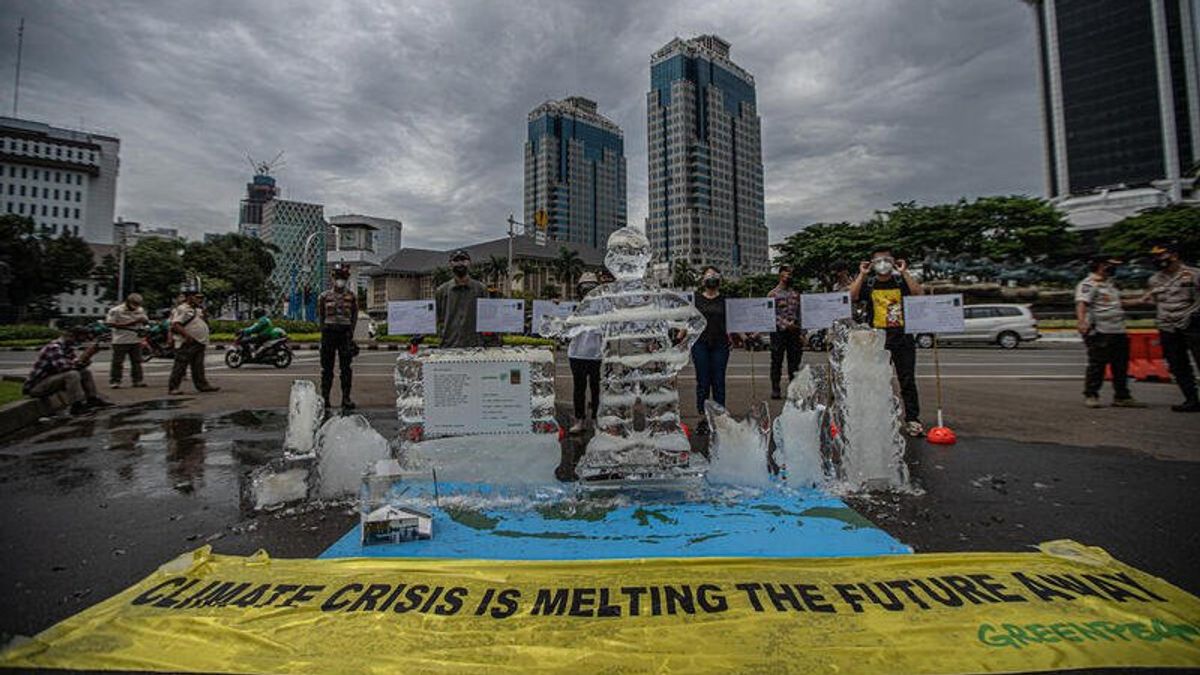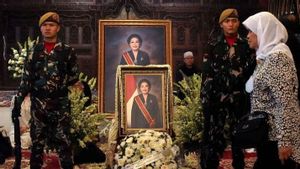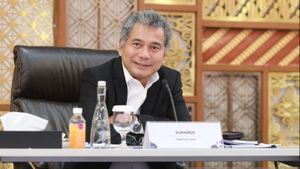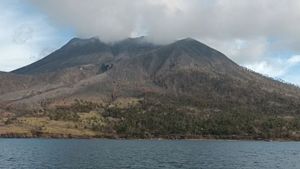
JAKARTA - Chairman of Cyber Indonesia Husin Shahab withdrew his report to Greenpeace Chairs Leonard Simanjuntak and Kiki Taufik who criticized President Joko Widodo's speech at the COP 26 Summit, Glasgow. The revocation of this report came after it was widely discussed by many parties. The question is, why do reports that can actually make the government seem anti-critic is still happening?
The revocation of the report was announced by the Polda Metro Jaya on November 15. "I just received it from the reporter and after discussion, the police report that was made was finally withdrawn," said the Director of General Crime Investigation of the Metro Jaya Police, Kombes Tubagus Ade Hidayat.
There are several reasons why the report was withdrawn. One of them is because the reporting party does not want the issue to be politicized by several parties. "One of the reasons is that he doesn't want this to be politicized. This is considered a form of anti-critical government."
Although the case has been withdrawn, Tubagus explained that this problem will be resolved in another way. "Later, it will be discussed through the academic pulpit," said Tubagus.
For your information, this report began when Husin Shahab felt aggrieved by Greenpeace Indonesia's statement criticizing President Jokowi's speech about deforestation at the COP 26 Summit, Glasgow. Greenpeace is considered to have created false news that caused trouble and the act of spreading information aimed at causing hatred or hostility.

Previously, the Head of Greenpeace Indonesia, Leonard Simanjuntak, admitted that he failed to understand the report by the Chairman of Cyber Indonesia, Husin Shahab. Leonard said in a democracy, differences of opinion are necessary.
"Debates like that are normal and should happen in a healthy democracy ... not report to the police if the views are different. So this is what reporting fails to understand," Leonard told Suara.
In fact, according to Leonard, Greenpeace's criticism of the government, especially the Ministry of Environment and Forestry (KLHK) regarding Indonesia's environmental conditions was met with healthy debate. He said KLHK officials had opened the door to debate, it was just a matter of finding time.
Then, if the Ministry of Environment and Forestry was open to discussion, Leonard questioned the interests of the reporter who complained Greenpeace to the police with the ITE Law. "If our democracy does not provide this space and is continuously criminalized, where are we going?" Leonard said.
Greenpeace itself ensures that its criticism and analysis of President Jokowi's speech at the COP 26 climate change summit in Glasgow is not without data. "What we convey is not a lie, we convey based on valid data, KLHK's own data."

Executive Director of Indonesia Political Review (IPR) Ujang Komaruddin assessed that it could be that the report made by the Chairman of Cyber Indonesia was only to seek the attention of the president.
"That might happen. It could be that you want to get a face to the president," Ujang told VOI.
In addition, according to Ujang, this reporting is also a form of silence to critics. The goal is to make Greenpeace give up and no longer dare to criticize the president.
"It could be that the political motive is for Greenpeace to give up and not dare to criticize the president again. It is a phenomenon of silence for critics," said Ujang.
If this continues to happen, according to Ujang, it is not impossible that the democratic climate in Indonesia will be increasingly damaged, undignified, and only side with those in power. "Because freedom of expression is deliberately silenced through these reporting methods."
Incidents of parties who are reported to the police for criticizing the government often occur. They happen to anyone. Not only activists and students but journalists who already have names. One of them is journalist Najwa Shihab.
Around October last year, United Jokowi Volunteers reported Najwa Shihab for interviewing an 'empty bench' ostensibly Health Minister Terawan Agus Putranto. According to the General Chairperson of the United Jokowi Volunteers, Silvia Devi Soembarto, quoted by Detik, the action was an act of cyber bullying.
Silvia also said that her party was moved to report Nana, Najwa Shihab's nickname, because the Minister of Health at the time, Terawan, was the representative of President Joko Widodo. "Cyber bullying because the source is not present is then interviewed and used as a parody. Parody is an act that should not be done to state officials, especially ministers," said Silvia
Apart from Najwa, another journalist who has been reported to the police for criticizing is Dandhy Laksono. In 2017, Dandhy was reported by Volunteers for the Struggle for Democracy (Repdem) because of writings uploaded to his Facebook account. The article was considered insulting to the Chairperson of the PDIP Megawati Soekarnoputri.
*Read other information about POLITICS or read other interesting articles from Ramdan Febrian Arifin.
Other BERNASThe English, Chinese, Japanese, Arabic, and French versions are automatically generated by the AI. So there may still be inaccuracies in translating, please always see Indonesian as our main language. (system supported by DigitalSiber.id)








